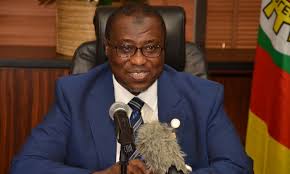Despite the billions of dollars spent annually by oil companies, the Nigerian petroleum industry still lacks an acceptable platform for the development of skills and capacities, Petroleum Technology Development Fund, PTDF has stated.
In a statement in Abuja, Wednesday, Mr. Bello Aliyu Gusau, Executive Secretary of the PTDF, also bemoaned the lack of effective co-ordination and silo approach to development of quality education and usable training in the petroleum industry, stating that all these are frustrating efforts to develop the country’s human resources to satisfy the needs of the oil and gas sector.
Gusau noted that most exploration and production (E&P) players in Nigeria offer different scholarship programmes, as well as the PTDF, which is statutorily mandated to build human and institutional capacity in the oil and gas industry, state governments and other government agencies who also engage in similar programmes.
He said, “Interventions in research, development and human capital run into billions of dollars annually from all players, but these interventions are undertaken by each player in accordance with its determination and needs. There is largely no co-ordinated approach to the development of these capacities or indeed even the education aspects of the capacity.”
“There is hardly any acceptable database of the skills or a hand book of the educational development requirements to fill identified human capacity gaps. While government agencies in the oil and gas, education and national planning sectors are all engaged in different aspects of determining education and skills requirements, private players in the industry are also doing the same to the extent of their needs and operational requirements.”
Gusau noted that rapid advances in artificial intelligence, automation and human-machine interaction have not obscured the primacy of people in the running of oil and gas business.
The human, he said, is central to the development, performance and sustainability of resource and tools deployed in the industry, and efforts must therefore be stepped up to recruit more talented oil and gas graduates to the industry and increase interest among current employees to sustain existing human resource pool.
He argued that the resort to human capital importation, which is against the local content law, is a consequence of lack of parity between national education and training interventions and the skills and competency requirements of the local oil and gas industry.
“The question then becomes what can we do to ensure the development of the critical mass of human resources to satisfy the needs of the oil and gas industry,” Gusau queried.
To this end, he called for the creation of a single national platform for the co-ordination of all collaborative activities geared towards the development of education, and human capital by relevant players in the industry.
According to him, this would ultimately lead to the provision of the skilled human capital resource requirement of the Nigeria oil and gas industry and to the sustenance of local content through quality education and training.

